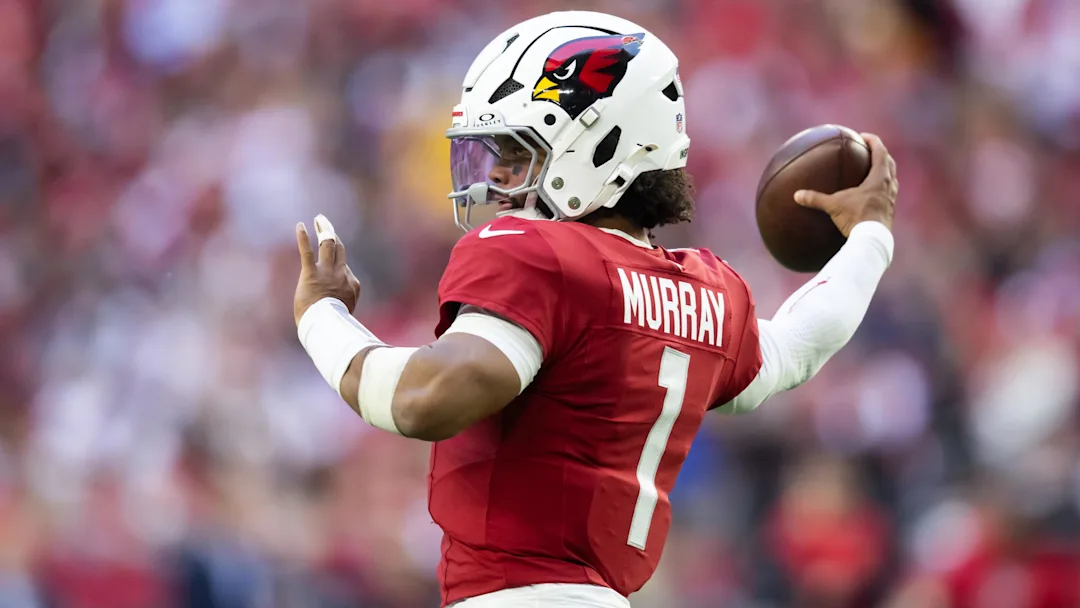In the high-stakes world of the NFL, the relationship between a franchise quarterback and the team’s general manager (GM) is pivotal. This dynamic is exemplified by the Arizona Cardinals’ journey with quarterback Kyler Murray and the candid insights from former GM Steve Keim. Keim’s tenure with the Cardinals, spanning from 2013 to 2022, saw the drafting of Murray as the first overall pick in 2019, a decision that has profoundly influenced the team’s trajectory.
The Drafting of Kyler Murray
In 2019, the Arizona Cardinals made a bold move by selecting Kyler Murray as the first overall pick in the NFL Draft. This decision, spearheaded by GM Steve Keim, was a testament to the organization’s belief in Murray’s potential to transform the franchise. Murray’s dual-threat capabilities, showcased during his collegiate career at Oklahoma, promised a new era of offensive dynamism for the Cardinals.
Early Success and Challenges
Murray’s initial seasons with the Cardinals were marked by flashes of brilliance, earning him Offensive Rookie of the Year honors in 2019 and Pro Bowl selections in subsequent years. However, the team’s performance remained inconsistent, leading to scrutiny not only of Murray’s on-field decisions but also of his off-field preparation and leadership qualities.
The Controversial Contract Clause
In July 2022, Murray signed a five-year, $230.5 million contract extension, solidifying his role as the franchise quarterback. The contract, however, included an unusual “independent study” clause, mandating that Murray dedicate a specific amount of time to film study each week. This stipulation raised eyebrows and sparked debates about the organization’s confidence in Murray’s commitment to preparation. The clause was eventually removed amid public backlash, but it left lingering questions about the quarterback’s work ethic.
Steve Keim’s Candid Reflections
After stepping down from his role in 2022, Steve Keim has been forthright about his perspectives on Murray. In various interviews, Keim has highlighted areas where he believes Murray can grow, particularly concerning film study and attention to detail. In an appearance on the “Green Light with Chris Long” podcast, Keim remarked:
“Does he know what Tom Brady and Peyton Manning know of what it takes to be great? No. Does he work? He does work. I think it’s just that side of the game—the film study, the attention to detail part—that he can continue to improve upon.”
Keim’s comments suggest that while Murray possesses undeniable talent, achieving elite status requires a deeper commitment to the cerebral aspects of the game.
Leadership and Accountability
Leadership in the NFL extends beyond physical prowess; it encompasses the ability to inspire teammates, make strategic decisions, and exhibit unwavering dedication. Keim has touched upon Murray’s leadership journey, indicating that growth in this area is essential for the quarterback’s and the team’s success. Reflecting on public remarks made by Murray about the team’s struggles, Keim noted:
“When you get that bag of cash, everybody expects you to take it on your shoulders.”
This statement underscores the heightened expectations and responsibilities that accompany a lucrative franchise quarterback contract.
The Path Forward
As of February 2025, the Cardinals are navigating a critical juncture. Murray’s return from a significant injury and the team’s performance in the upcoming season will be pivotal in determining the franchise’s direction. The candid insights from Steve Keim serve as both a critique and a roadmap, emphasizing the areas where Murray can evolve to meet the lofty expectations placed upon him.
In conclusion, the relationship between Kyler Murray and the Arizona Cardinals’ management offers a compelling narrative about talent, expectation, and the relentless pursuit of excellence in professional sports. Steve Keim’s candid reflections provide valuable context to Murray’s journey, highlighting the intricate balance between natural ability and the dedication required to achieve greatness in the NFL.
The Broader Implications for Collegiate Athletics
Ben Christman’s sudden passing has sparked conversations about the pressures and physical demands placed on collegiate athletes. The world of college football is highly competitive, with rigorous training schedules, constant physical exertion, and the mental stress of balancing academics and athletics. While programs provide medical support, nutrition plans, and mental health resources, tragedies like Christman’s highlight the need for continuous evaluation and improvement in athlete welfare.
One pressing concern is whether the current NCAA medical protocols are sufficient to detect potential health risks in young athletes. Many universities conduct annual physical examinations, but these often focus on orthopedic issues and general health rather than in-depth cardiovascular screenings. Some medical experts have advocated for mandatory electrocardiograms (EKGs) or echocardiograms for all athletes, particularly those in high-impact sports such as football, basketball, and track.
Dr. James Higgins, a cardiologist specializing in sports medicine, commented on the situation:
“Athletes are often in peak physical condition, but that doesn’t make them immune to cardiac issues. The challenge is that many conditions leading to sudden cardiac arrest don’t present symptoms until it’s too late. Implementing more thorough screening procedures could be the difference between life and death in some cases.”
As universities, athletic departments, and sports medicine professionals analyze Christman’s case, there is hope that his passing will serve as a catalyst for improving medical protocols, ensuring that every athlete receives the highest level of care and preventive monitoring.
The Role of Mental Health in Athlete Well-Being
While the focus of Christman’s passing has largely been on the physical aspects of his health, it is also essential to consider the mental toll that athletes endure. The transition from high school to college athletics is a significant shift, and for Christman, transferring between three different programs (Ohio State, Kentucky, and UNLV) likely came with additional challenges.
College athletes face intense pressure to perform, maintain peak fitness, and meet academic expectations, often while being away from home and their established support systems. In recent years, tragic cases of young athletes struggling with mental health challenges have prompted a broader discussion about the resources available to them.
UNLV, like many other universities, offers sports psychologists, counseling services, and mentorship programs to help athletes navigate these challenges. However, there is always room for improvement in making these services more accessible and ensuring that athletes feel comfortable seeking help when needed.
Christman was widely described as a joyful and uplifting presence in the locker room, but even the strongest individuals can experience personal struggles. As the sports world reflects on his life and legacy, it is crucial to reinforce the message that seeking help—whether for physical or mental health concerns—is a sign of strength, not weakness.
Tributes and Community Support
The outpouring of support following Christman’s passing has been overwhelming, with tributes coming from fans, former coaches, teammates, and even professional athletes. At his hometown of Richfield, Ohio, the community has held candlelight vigils in his honor. His former high school football team, the Revere Minutemen, hosted a special gathering where coaches and teammates shared memories of Christman’s leadership, work ethic, and kindness.
One of Christman’s closest friends, former teammate Jake Mitchell, shared a heartfelt statement:
“Ben was more than just an athlete—he was a brother, a friend, and someone who made life better for everyone around him. Whether it was in the locker room, on the field, or just hanging out, he had a way of making people smile. It’s hard to imagine life without him.”
At UNLV, the team has dedicated its upcoming season to Christman’s memory, with plans to honor him through helmet decals, pre-game tributes, and community service initiatives that reflect his values. The program is also working with his family to establish an annual scholarship in his name, aimed at supporting student-athletes who exemplify dedication and perseverance.
A Future Shaped by His Legacy
While the loss of Ben Christman is an immense tragedy, his legacy will continue to influence the world of sports. His dedication to football, his commitment to his teammates, and the kindness he showed to others serve as an enduring inspiration.
In the coming months, as more details emerge regarding the cause of his passing, universities and athletic organizations will likely take steps to enhance athlete safety, whether through improved health screenings, increased mental health resources, or greater awareness of the challenges that student-athletes face.
For his family, friends, and the countless individuals who admired him, the goal is clear: to ensure that his memory is honored not just in words, but through meaningful actions that make collegiate athletics safer, more supportive, and more compassionate.
As the football world continues to mourn, one thing remains certain—Ben Christman’s impact will not fade. His story will inspire future athletes to give their all, support one another, and cherish every moment, both on and off the field.



